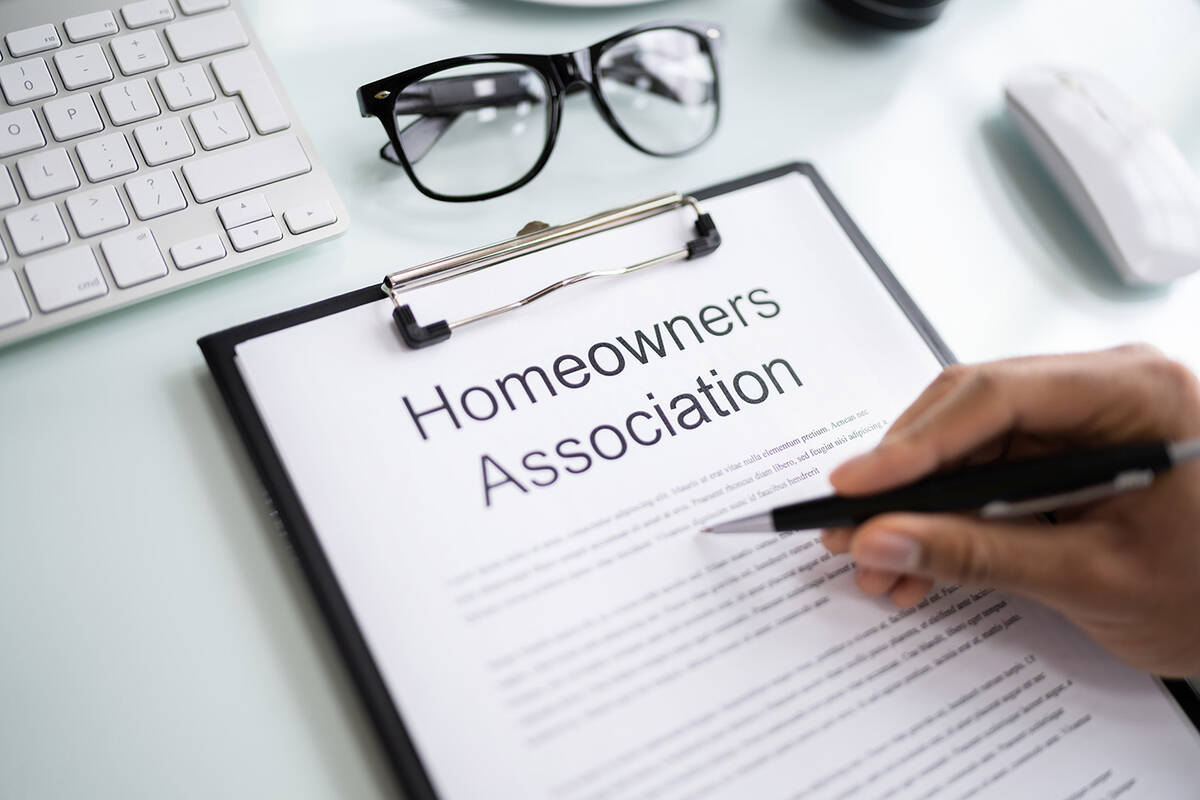Let’s kick of 2023 on a positive note
As we end another year, let’s make the coming year a positive one. It is time for the toxic behavior to end. It is time for listening better and helping each other. I don’t think that board members and homeowners realize how their behavior impacts everyone, especially the community managers and staff, many of whom end up leaving the profession.
At the same time, community managers and staff must also control their negative behavior.
I have included in this article two laws, one of which many managers are familiar with, that being the “bully law” of Nevada Revised Statute 116.31184. Too many homeowners, board members and community managers are not familiar with a law that passed in 2021, NRS 388.12. I am including this law because it provides more detail of what constitutes unacceptable behavior.
There are too many examples of bad behavior that could cost an association thousands of dollars in lawsuits, from harassment of staff by a board member, to a homeowner using inappropriate language at one of the landscape employees and to a homeowner disrespectfully arguing with a staff member.
All of us can get upset or angry about “the system” but screaming in someone’s face and threatening doesn’t solve the problems.
Let’s agree to start working with each other to solve problems. Be better listeners. Be fair. If we take these small steps, we can change the culture of our communities.
Anti-bullying laws
NRS 116.31184- Threats, harassment and other conduct prohibited, penalty.
1. A community manager or agent or employee of the community manager, a member of the executive board, an officer, employee or agent of the association, a unit’s owner or guest or tenant of a unit’s owner shall not willfully and without legal authority threaten, harass or otherwise engage in a course of conduct against any other person who is the community manager of his or her common-interest community or an agent or employee of that community manager, a member of the executive board of his or her association, an offer, employee or agent of his or her association, another unit’s owner in his or her common-interest community or a guest or tenant of a unit’s owner in his or her common-interest community which:
(a) Causes harm or serious emotional distress, or the reasonable apprehension thereof, to that person; or
(b) Creates a hostile environment for that person.
2. A person who violates the provisions of subsection 1 is guilty of a misdemeanor.
(Added to NRS by 2013, 2529)
NV Rev Stat 388.122 (2021)
1. “Bullying” means written, verbal or electronic expressions of physical acts or gestures, or any combination thereof, that are directed at a person or a group of persons, or a single severe and willful act or expression that is directed at a person or group of persons; and:
(a) Have the effect of:
(1) Physically harming a person or damaging the property of a person ; or
(2) Placing a person in reasonable fear or physical harm to the person or damage to the property of the person.
(b) Interfere with the rights of a person by:
(1) Creating an intimidating or hostile educational environment for the person; or
(2) Substantially interfering with the academic performance of a pupil or the ability of the person to participate in or benefit from services, activities or privileges provided by a school; or
(c) Are acts or conduct described in paragraph (a) or (b) and are based upon the:
(1) Actual or perceived race, color, national origin, ancestry, religion, gender identity or expression, sexual orientation, physical or mental disability of a person, sex or any other distinguishing characteristics or background of a person; or
(2) Association of a person with another person having one or more of those actual or perceived characteristics.
2. The term includes, without limitation:
(a) Repeated or pervasive taunting, name-calling, belittling, mocking or use of put-downs or demeaning humor regarding the actual or perceived race, color, national origin, ancestry, religion, gender identity or expression, sexual orientation, physical or mental disability of a person, sex or any other distinguishing characteristic or background of a person.
(b) Behavior that is intended to harm another person by damaging or manipulating his or her relationships with others by conduct that includes, without limitation, spreading false rumors.
(c) Repeated or pervasive nonverbal threats or intimidation such as the use of aggressive, menacing, or disrespectful gestures.
(d) Threats of harm to a person, to his or her possessions or to another persons, whether such threats are transmitted verbally, electronically or in writing.
(e) Blackmail, extortion or demands for protection money or involuntary loans or donations.
(f) Blocking to any property or facility of a school.
(g) Stalking.
(h) Physically harmful contact with or injury to another person or his or her property.
(Added NRS by 2009, 687; A 2011, 2245, 2013, 1655, 2138, 2015, 411)
Barbara Holland is an author and educator on real estate management. Questions may be sent to holland744o@gmail.com.

